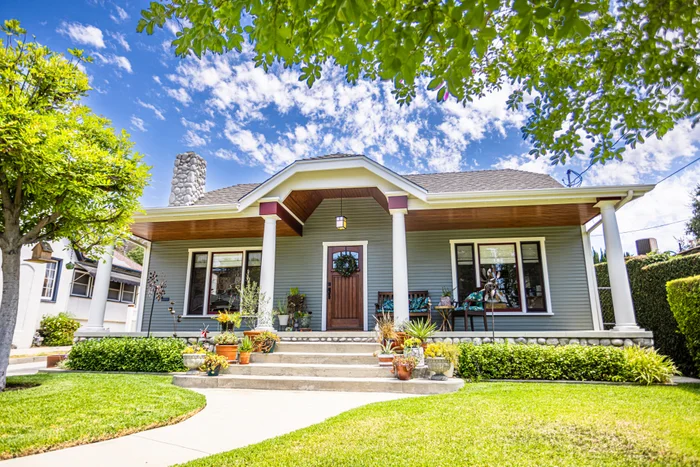Securing a homeowners insurance quote is a crucial step for anyone looking to safeguard their home, belongings, and financial future. Not only does homeowners insurance protect your property against potential risks like fires, storms, and theft, but it also offers liability coverage, which can protect you if someone is injured on your property. Before diving into the details of your next homeowners insurance policy, understanding how quotes work, what impacts rates, and what coverage options you may need can help ensure you’re making the best choice for your needs and budget.
What Is a Homeowners Insurance Quote?
A homeowners insurance quote is an estimate of the cost you will pay for a homeowners insurance policy. Insurance companies calculate quotes based on various factors, including the type of coverage you select, the value of your home, and any potential risks associated with your property. By comparing quotes from different providers, you can find a policy that offers the best balance between cost and coverage.

Key Factors That Influence Your Homeowners Insurance Quote
Many aspects of your home, its location, and your personal details contribute to the cost of a homeowners insurance quote. Here are some primary factors that insurance providers consider:
1. Location of Your Home
- Homes in areas prone to natural disasters (e.g., hurricanes, earthquakes, floods) typically have higher insurance rates.
- Proximity to emergency services, like fire stations, can also impact rates positively.
2. Value and Replacement Cost of the Home
- The replacement cost of your home (how much it would cost to rebuild) heavily influences your premium.
- Higher-value homes generally cost more to insure due to increased repair or rebuilding expenses.
3. Age and Condition of the Property
- Older homes with outdated electrical, plumbing, or roofing systems might be more expensive to insure.
- A well-maintained home, especially with recent updates, can sometimes qualify for lower premiums.
4. Deductible Amount
- Choosing a higher deductible can reduce your premium but means you’ll pay more out-of-pocket if you need to file a claim.
- Lower deductibles increase the premium but can lessen your financial responsibility when claiming.
5. Coverage Limits and Policy Options
- Basic policies cover the structure of the home, personal property, and liability. Additional coverages, such as for high-value items or special structures, will increase your premium.
- Customizable policies allow homeowners to add riders or endorsements, which can also affect the quote.
6. Credit Score and Claims History
- A good credit score can make a positive impact on your quote, while a history of insurance claims could increase your rate.
7. Home Security and Safety Features
- Security systems, smoke detectors, and fire sprinklers can lower premiums as they reduce the risk of major losses.
Steps to Get a Homeowners Insurance Quote
Getting a homeowners insurance quote is simple with these steps:
- Gather Necessary Information
Have details about your home’s age, square footage, type of construction, and any safety features. - Determine the Type of Coverage You Need
Decide on coverage for your home structure, personal property, and liability, as well as any additional coverage for valuables or unique risks. - Shop Around for Quotes
Use online tools or contact insurance agents to compare quotes from different companies. - Evaluate Policy Details
Don’t just look at the cost—evaluate the coverage limits, deductibles, and any exclusions to ensure it meets your needs. - Consider Bundling
Many insurers offer discounts if you bundle your home insurance with other policies, such as auto insurance. - Ask About Discounts
Ask insurers about potential discounts for security systems, fire protection measures, or home improvements.
Types of Coverage Included in a Homeowners Insurance Policy
Understanding the different coverage types can help you make an informed choice on your policy:
- Dwelling Coverage: Protects the structure of your home from covered perils like fire and hail.
- Personal Property Coverage: Covers the belongings within your home, such as furniture and electronics.
- Liability Protection: Provides coverage if you are legally responsible for injuries or damages to others.
- Additional Living Expenses: Pays for temporary living costs if you must relocate due to damage.

Tips for Lowering Your Homeowners Insurance Quote
Securing an affordable homeowners insurance quote while ensuring adequate protection is possible with a few strategic tips:
- Increase Your Deductible: If you can afford a higher out-of-pocket cost, raising your deductible can reduce your premium.
- Improve Home Security: Installing security systems, smoke alarms, and other safety devices can often lead to discounts.
- Maintain a Good Credit Score: Many insurers use credit scores to assess risk; improving your score may help lower your rate.
- Avoid Small Claims: Frequent claims can drive up your premium, so it’s often best to only file for significant issues.
- Bundle Policies: Most insurers provide discounts if you hold multiple policies with them.
Frequently Asked Questions
What does homeowners insurance cover?
Homeowners insurance covers the structure of the home, personal belongings, liability protection, and additional living expenses if you need to temporarily relocate. Certain natural disasters and exclusions may require separate policies or endorsements.
Is it mandatory to have homeowners insurance?
While homeowners insurance isn’t legally required, mortgage lenders usually require it to protect their investment. Even without a mortgage, it’s a wise choice to safeguard your home and assets.
How often should I compare homeowners insurance quotes?
Experts suggest comparing quotes annually or whenever there are significant changes to your home or financial situation. Regularly comparing quotes ensures you’re not overpaying and are getting the best coverage for your needs.
Can I get discounts on my homeowners insurance?
Yes, most insurers offer various discounts, such as those for bundling, installing security systems, or maintaining a claims-free history. It’s always worth asking your provider what discounts may be available.
How much homeowners insurance do I need?
You should have enough coverage to rebuild your home and replace your belongings in case of a total loss. Liability limits should also reflect your net worth or risk exposure.
Will my homeowners insurance cover flood or earthquake damage?
Typically, standard homeowners insurance policies do not cover flood or earthquake damage. Separate policies are available for these types of disasters if they’re common in your area.
Conclusion
Getting a homeowners insurance quote can feel like an overwhelming process, but understanding the factors that affect your rate and knowing what coverage you need makes it easier. Start by evaluating your home’s value, the type of protection you want, and any specific risks you face. By shopping around, you can find an affordable policy that safeguards your property, offers peace of mind, and helps secure your financial future.
